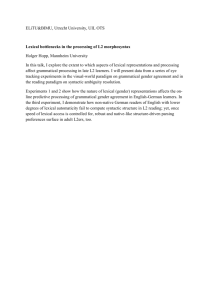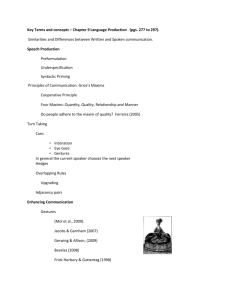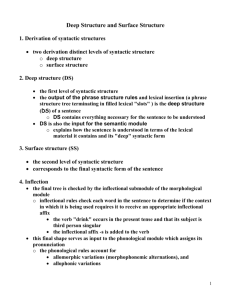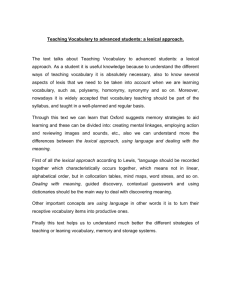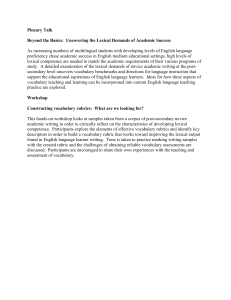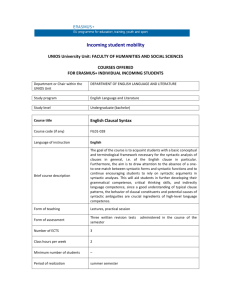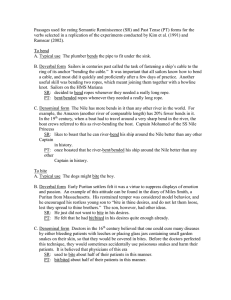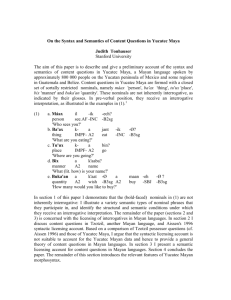Leigh Hunnicutt
advertisement
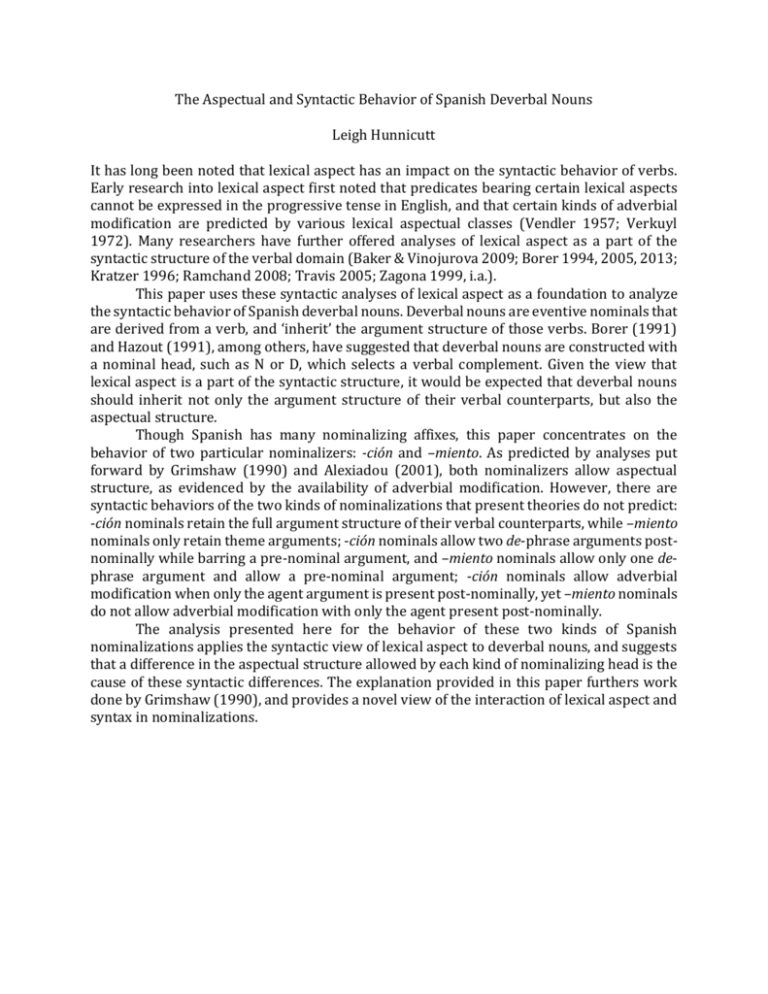
The Aspectual and Syntactic Behavior of Spanish Deverbal Nouns Leigh Hunnicutt It has long been noted that lexical aspect has an impact on the syntactic behavior of verbs. Early research into lexical aspect first noted that predicates bearing certain lexical aspects cannot be expressed in the progressive tense in English, and that certain kinds of adverbial modification are predicted by various lexical aspectual classes (Vendler 1957; Verkuyl 1972). Many researchers have further offered analyses of lexical aspect as a part of the syntactic structure of the verbal domain (Baker & Vinojurova 2009; Borer 1994, 2005, 2013; Kratzer 1996; Ramchand 2008; Travis 2005; Zagona 1999, i.a.). This paper uses these syntactic analyses of lexical aspect as a foundation to analyze the syntactic behavior of Spanish deverbal nouns. Deverbal nouns are eventive nominals that are derived from a verb, and ‘inherit’ the argument structure of those verbs. Borer (1991) and Hazout (1991), among others, have suggested that deverbal nouns are constructed with a nominal head, such as N or D, which selects a verbal complement. Given the view that lexical aspect is a part of the syntactic structure, it would be expected that deverbal nouns should inherit not only the argument structure of their verbal counterparts, but also the aspectual structure. Though Spanish has many nominalizing affixes, this paper concentrates on the behavior of two particular nominalizers: -ción and –miento. As predicted by analyses put forward by Grimshaw (1990) and Alexiadou (2001), both nominalizers allow aspectual structure, as evidenced by the availability of adverbial modification. However, there are syntactic behaviors of the two kinds of nominalizations that present theories do not predict: -ción nominals retain the full argument structure of their verbal counterparts, while –miento nominals only retain theme arguments; -ción nominals allow two de-phrase arguments postnominally while barring a pre-nominal argument, and –miento nominals allow only one dephrase argument and allow a pre-nominal argument; -ción nominals allow adverbial modification when only the agent argument is present post-nominally, yet –miento nominals do not allow adverbial modification with only the agent present post-nominally. The analysis presented here for the behavior of these two kinds of Spanish nominalizations applies the syntactic view of lexical aspect to deverbal nouns, and suggests that a difference in the aspectual structure allowed by each kind of nominalizing head is the cause of these syntactic differences. The explanation provided in this paper furthers work done by Grimshaw (1990), and provides a novel view of the interaction of lexical aspect and syntax in nominalizations.
